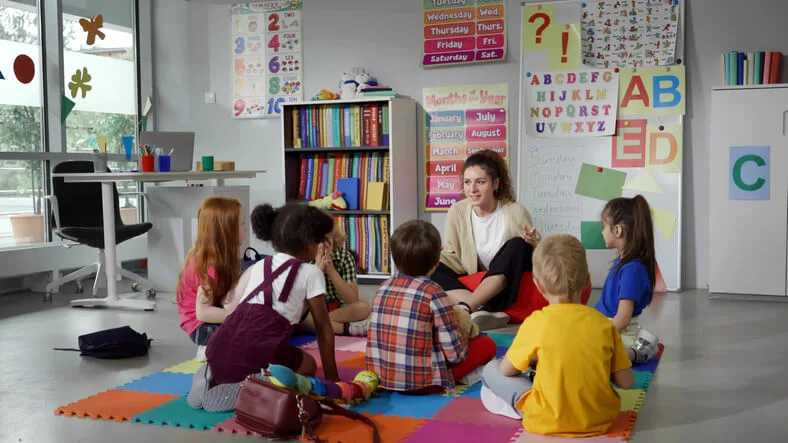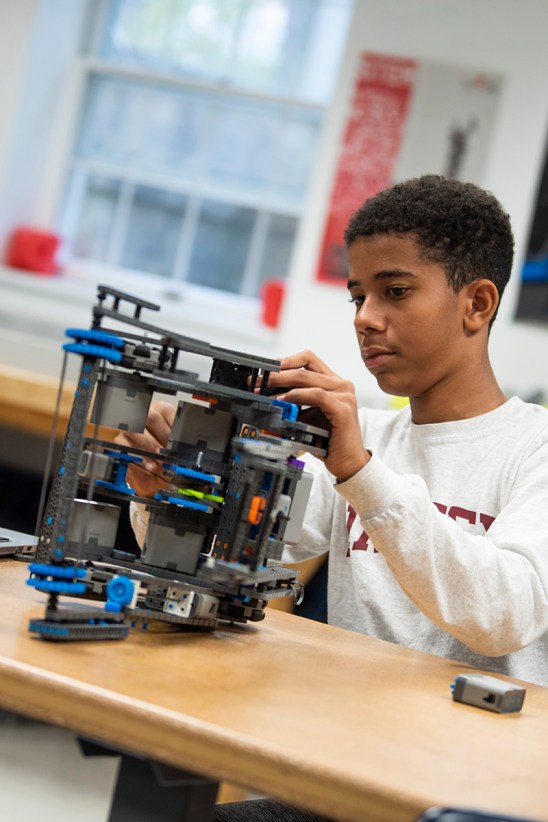At the start of every school year, parents enter into an alliance that can greatly increase their student’s chances for academic success. Parent-teacher conferences typically occur in the fall with subsequent meetings varying from one academic setting to another. Though this shouldn’t be the only time parents touch base with their child’s teacher, it will pave the way for a partnership steeped in communication and cooperation that endures throughout the school year.
That’s what Ann Marie Phillips believes.
“Parent-teacher conferences are a time for me to find out how my children are adjusting to their new grade level and a different volume of work,” says the mother of Kaitlin in fifth grade and Ean in sixth. “It’s also an opportunity to get to know my child’s teacher and learn what her expectations are so I can support these efforts from home.”
“Before leaving home, parents may want to jot down questions or concerns they have based on conversations they have had with their child or things they’ve observed while watching him do homework,” says Melissa Tabor, director of learning support and middle school teacher at a private school. “It’s also a good idea to review any work the child has brought home that may need clarification.”
Phillips does this.
“I’ll bring in old tests and quizzes that are in question, as well as current assignments if I need to get a grip on how something is done—a math procedure, for example,” she says. “Since the teacher and I correspond through my kids’ agenda books, I also skim through these to see if anything we’ve previously discussed needs to be hashed out in more detail.”
Some schools encourage students to participate in conferences. Barbara Rosen’s does.
“I like my students to come because it encourages them to take ownership and responsibility of their education,” says the fifth grade educator. “But they don’t just sit there while we talk. I get them involved by having them show their parents their work and describe the activities and procedures we’re doing in the classroom then I’ll add to it. We celebrate what they are doing right. And if there’s a problem, the three or four of us can immediately work toward finding a solution.”
Last year Ean was in Rosen’s class and so participated in the conference.
“At first he was a little apprehensive about going, but then Mrs. Rosen got him involved and it turned out to be a really positive experience,” says Phillips. “One thing I liked about having Ean there was it gave me a chance to see how he interacted with the teacher—if he was comfortable speaking with her and if their personalities were well matched. This year Kaitlin has Mrs. Rosen and I expect it to go equally as well.”
During these meetings parents will get a glimpse of their child’s work and find out how he is progressing.
“Teachers normally keep a portfolio for each student with documentation that is divided into sections,” says Tabor. “As the teacher progresses through each subject, she’ll note if the child is doing well in a particular subject and address any areas of concern. If there is a problem, she’ll make a recommendation and ask for the parent’s input.”
This has been Sherry Fornwalt’s experience.
“During conference time I’ll find out about concessions they are making for my son as a result of his disability,” says the mother of her fourth-grade student who has been diagnosed with several disorders. “They’ll also show me work they haven’t sent home, clue me in on what he’s able to do independently and let me know how he’s interacting with other kids in the class.”
Teachers may also want parents to briefly share about their child’s likes, dislikes, strengths and weaknesses, as well as any stressful conditions in his life as this can affect his academic performance.
“After the conference, talk with your child about what was discussed. Start with positive comments that were made, then share any concerns you or the teacher had and follow up with a pre-agreed action plan to address it,” says Tabor.
Fornwalt does this.
“We have date nights on Fridays and we’ll talk about it then,” she says. “I’ll give my son an overall picture in a positive light. Then if I need to address something I’ll mention that. If the teacher suggests we work on something like reading, we’ll go to the bookstore, purchase some books and then take turns reading. So I’m turning a negative into a positive experience to encourage him.”
Follow up with the teacher too.
“Once you’ve implemented strategies that were discussed during conference time, touch base with the teacher to let her know how things are going at home and ask if she’s seen any changes during class time,” says Rosen.
Most important don’t let conference time be the only time you interact with your child’s teacher. Find out early on the best way to communicate then maintain a constant dialogue about your child’s academic progress throughout the school year.
-Denise Yearian is the former editor of two parenting magazines and the mother of three children.














